

- home
- welcome
- news
- photo gallery
- organizers
- committees
- general information: - detailed information - registration - payments - accomodation - grants
- scientific programme: - abstracts - topics - schedule - detailed programme - keynote speakers
- sponsorship: - sponsors invitation - sponsors
- social programme
- post-symposium tours
- tourist information
- links
- contact
media patrons:



ORGANIZERS
- Jagiellonian University, Medical College, Department of Clinical and Environmental Allergology
- University of Rzeszów
- European Aerobiology Society
- Polish Aerobiology Network
- Polish Botanical Society
- Allergen Research Center
- Polish Allergological Association
- Polish Society For Fighting Allergic Diseases
- Voivodship Inspectorate for Environmental Protection in Krakow
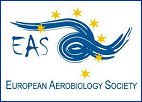
The 5th European Symposium on Aerobiology is organized the first time under auspices of the European Aerobiology Society (www.eas.polleninfo.org), which was founded in Turku, in 2008, during the 4th Symposium. The main aim of the Society is to promote aerobiology and its further development and to facilitate collaboration, research, education, information, technical development and practical application in the field of aerobiology. The 5th ESA organization is assisted by the EAS Working Group for European Symposia.
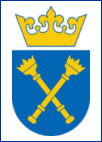
The main organizer of the 5th ESA is the Jagiellonian University (www.uj.edu.pl) where several departments interested in Aerobiology in two Faculties – Faculty of Medicine named Collegium Medicum (www.cm-uj.krakow.pl) and Faculty of Biology and Earth Sciences (www.binoz.uj.edu.pl) co-operate. The Krakow Aeromonitoring Station is located in the Dpt of Allergology and Clinical Immunology Collegium Medicum (www.toksy-alergo.cm-uj.krakow.pl) and continuous pollen observations have been performed in last 20 years. Thus, Krakow Station was accepted by the General Assembly of EAS in Turku, in 2008 to organize the next Symposium.
Since the beginning of the Station activity, the co-operation with the Institute of Botany (www.ib.uj.edu.pl), especially with the Dpt of Palaeobotany, and the Botanical Garden (www.ogrod.uj.edu.pl) has been developed. Professor Kazimierz Szczepanek, in the Dpt of Palaeobotany, one of the initiators of the aerobiological studies in Poland, applied the gravimetric method in pollen concentration measurement in Krakow, in 1982. In the Botanical Garden some of the phenological observations are carried out and there the annual conferences “Days of Pollen Allergy in Krakow” inspired by Professor Krystyna Obtułowicz are hosted.
It is worthy to say that Krakow Aeromonitoring Station co-operates with the Institute of Geography and Spatial Management (www.geo.uj.edu.pl), especially with the Dpt of Climatology (www.klimat.geo.u.edu.pl). Scientific co-operation is dealing with the interpretation of aerobiological results using the meteorological parameters.
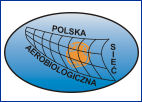
The Krakow Monitoring Station is the Coordinator of the Polish Aerobiology Network joining 7 University Centres. PAN is organized by the small, but very active team of scientists. The Polish Network came into being to help to develop aerobiology as a scientific discipline in Poland and to co-ordinate the activity of aeropalynological monitoring centers.

At the Faculty of Biology and Agriculture (Dpt of Environmental Biology) of University of Rzeszow (www.univ.rzeszow.pl), one of the main active Polish aerobiological stations has been working since 1997. The local team of the aerobiologists declared to organize the post-symposium tour to the Bieszczady Mountains.
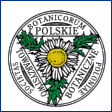
The Polish team of aerobiologists co-operates very closely with the Polish Botanical Society (www.ib-pan.krakow.pl) within which the Section of Aerobiology has been acted since 2005. The activity of the Section concentrates on the integration of the Polish aerobiological teams and realization of the joint scientific tasks.
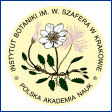
In sixtieth of the last century the first regular study on the pollen fall in the Institute of Botany, Polish Academy of Sciences (www.ib-pan.krakow.pl) started in Krakow. The pollen fall was analysed (1964-1967) using the Durham trap, with co-operation to allergologists. Presently, especially the Department of Palaeobotany deals with the history of flora development from the mesophytic period till now and studies on environmental pollution, including biological monitoring in Kraków.
Taking into consideration the practical application of the aerobiological study in medicine, the co-operation among university monitoring centres and medical institutions and societies is indispensable.
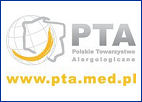
The Polish Society of Allergology (www.pta.med.pl) is involved in the aerobiological research, pollen monitoring results and their application in the diagnostics and treatment of allergic diseases. The authorities of the Society declared to help in organizing the “Medical Day” during the Symposium.
The Allergen Research Center in Warsaw (www.obas.pl) is responsible for national reports, on pollen and fungal spore concentrations, transferred by media and promotes the importance of aerobiological observations in a medical community.
PARTNERS
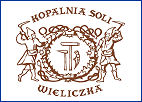
The Wieliczka Salt Mine (www.kopalnia.pl) is a unique monument registered on the UNESCO World List of Culture and Nature Heritage. The Underground Rehabilitation and Treatment Centre, working 135 m under the ground in the specific microclimatic conditions, is supervised by the Department of Allergology JUMC.
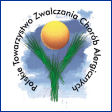
The Polish Society for Fighting Allergic Diseases (www.ptzca.pl) promotes the results of the aerobiological monitoring to be helpful in the pollen allergy prophylaxis. The weekly pollen reports are available on the PTZCA website, which is directed especially to the patients suffering from allergic diseases.
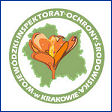
Inspectorate for Environmental Protection in Krakow (www.krakow.pios.gov.pl), as a local authority supports our research as a part of the environmental study in Malopolska Province. On the Inspectorate website the pollen reports are available next to the information on following environmental parameters, such as air quality, surface water monitoring, noise monitoring and ionizing radiation monitoring.
